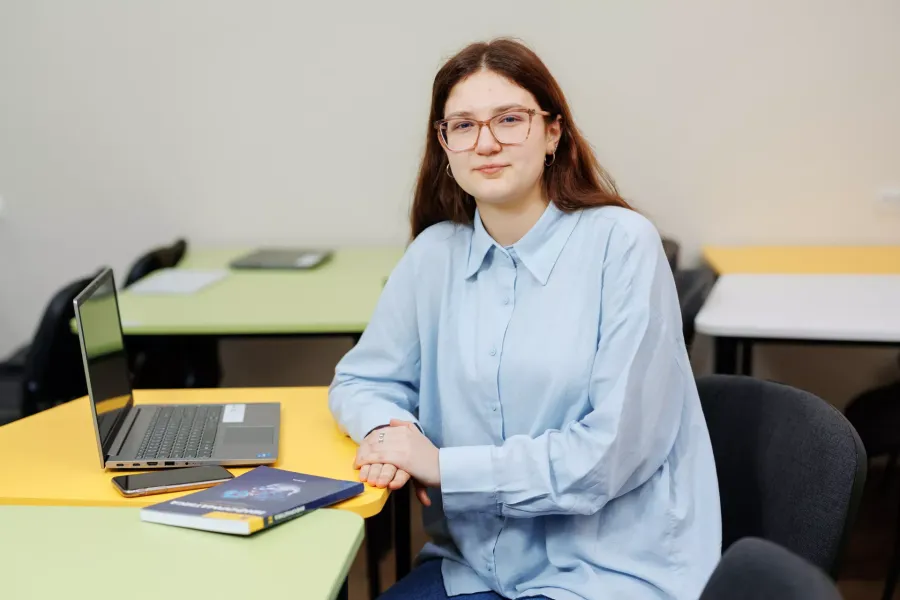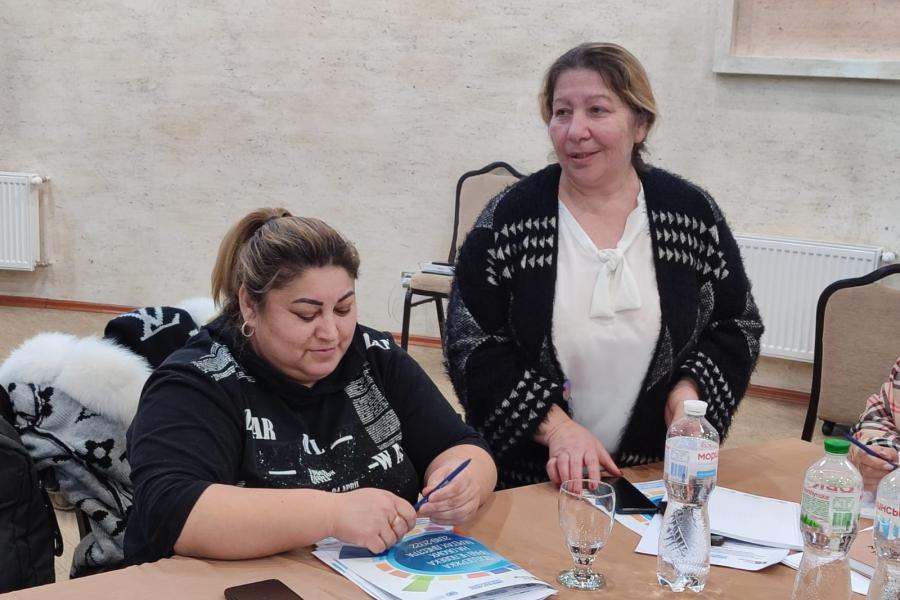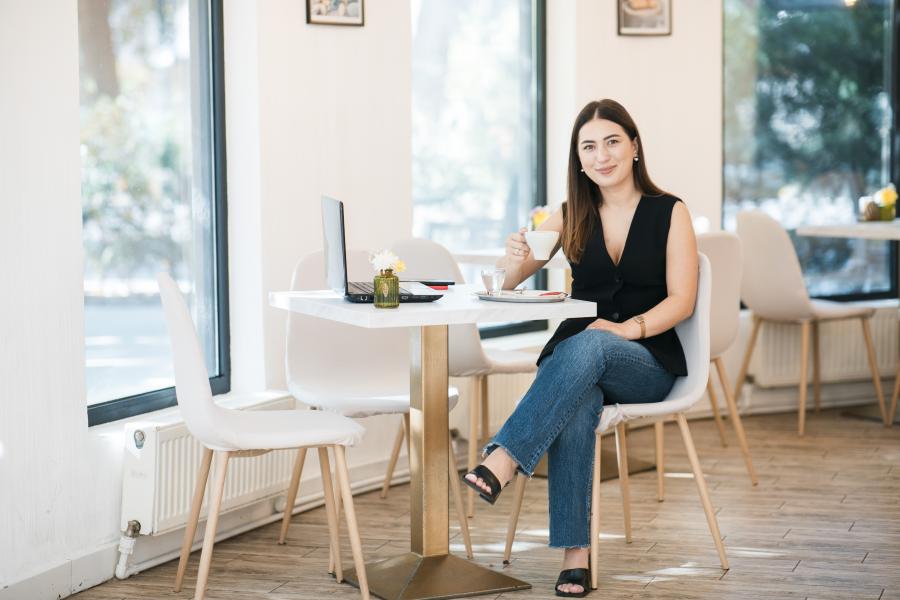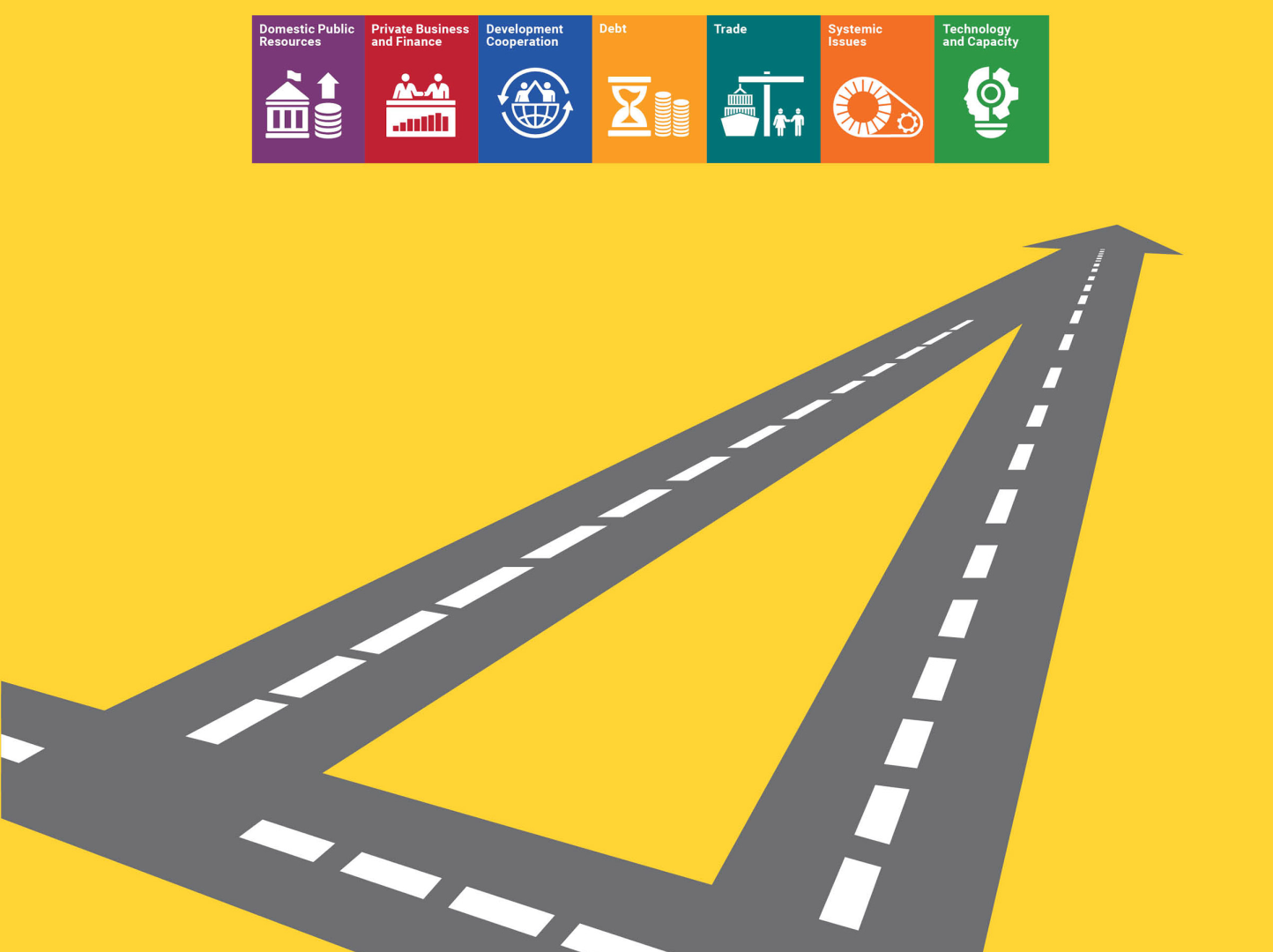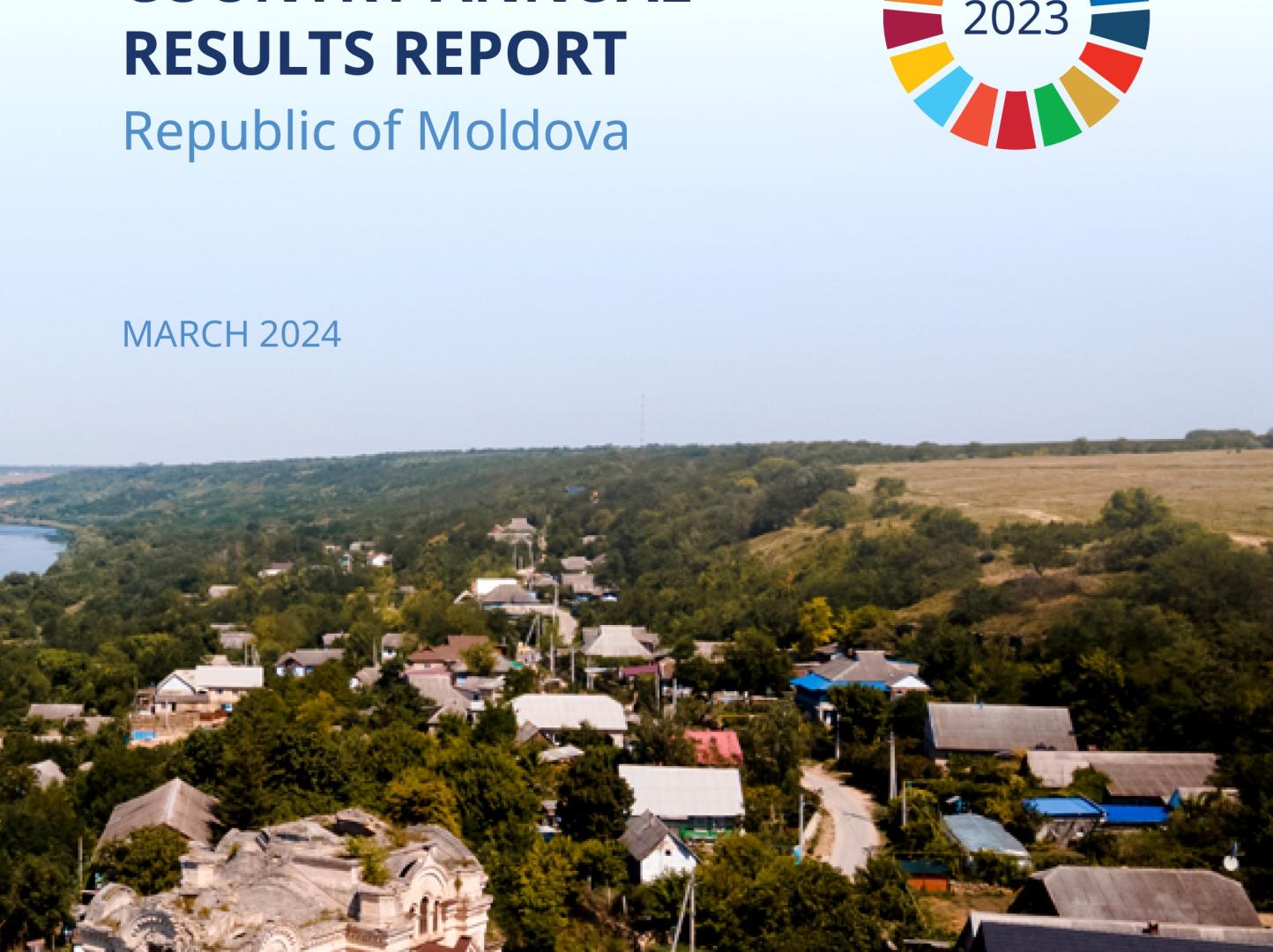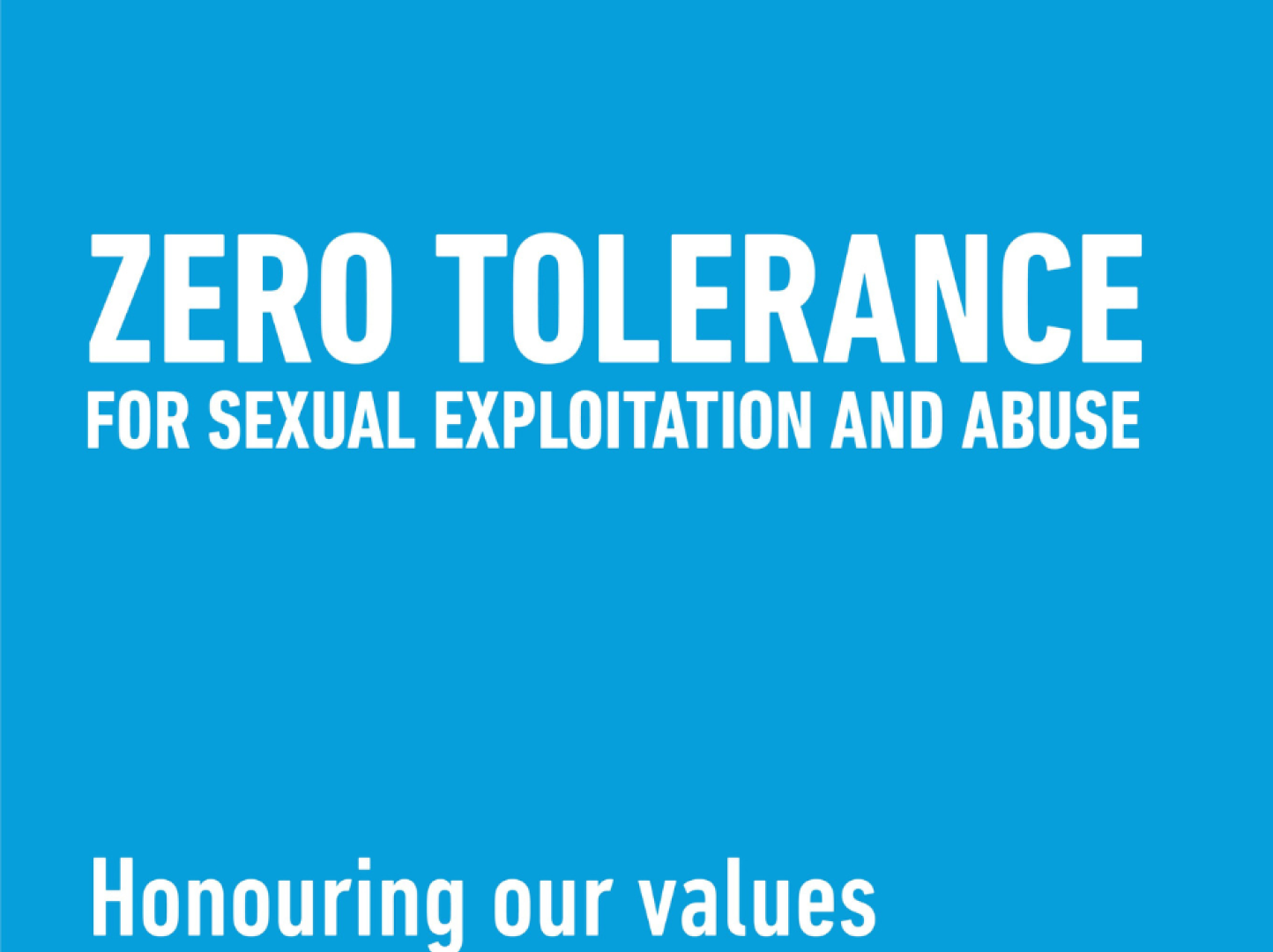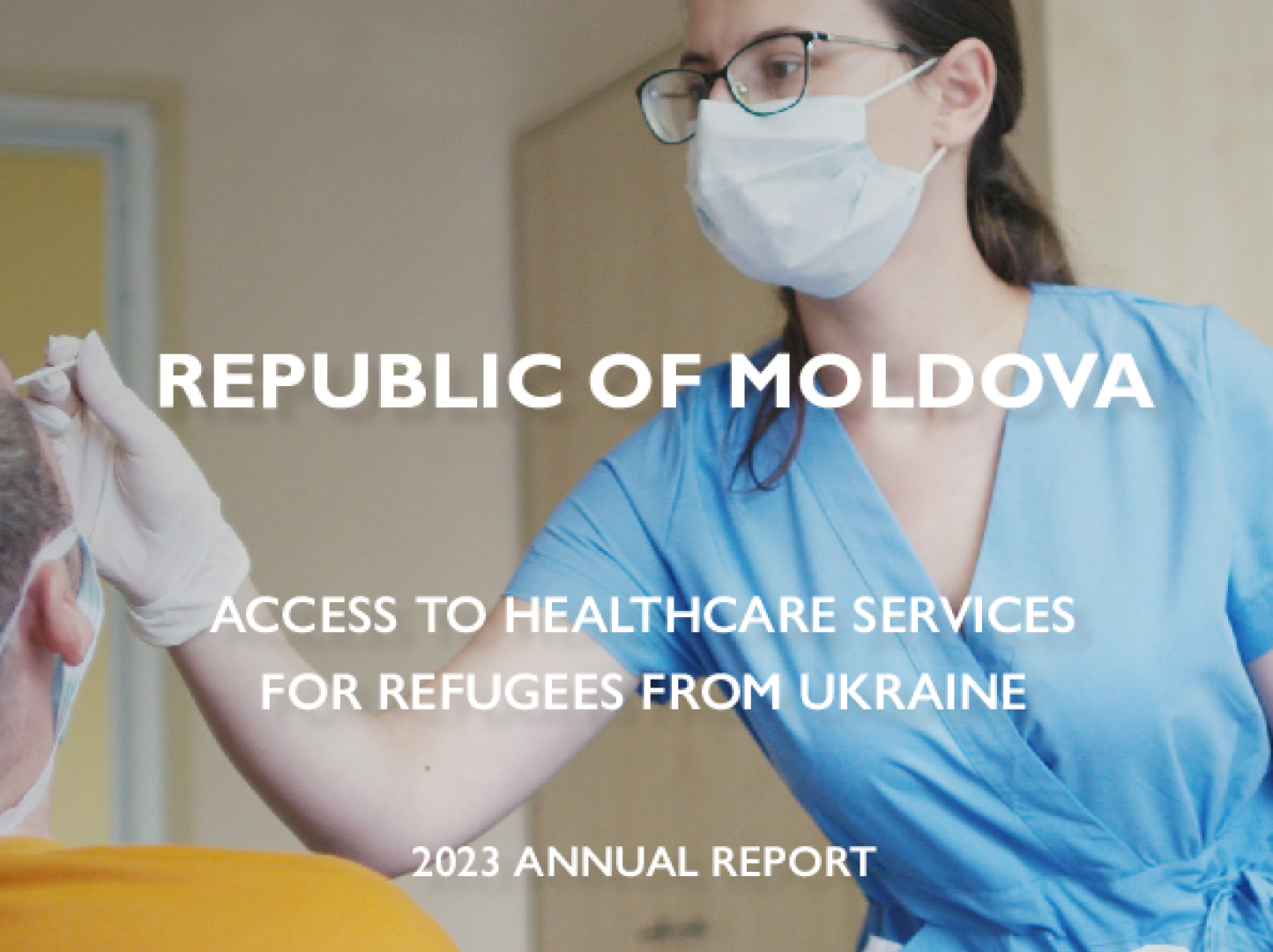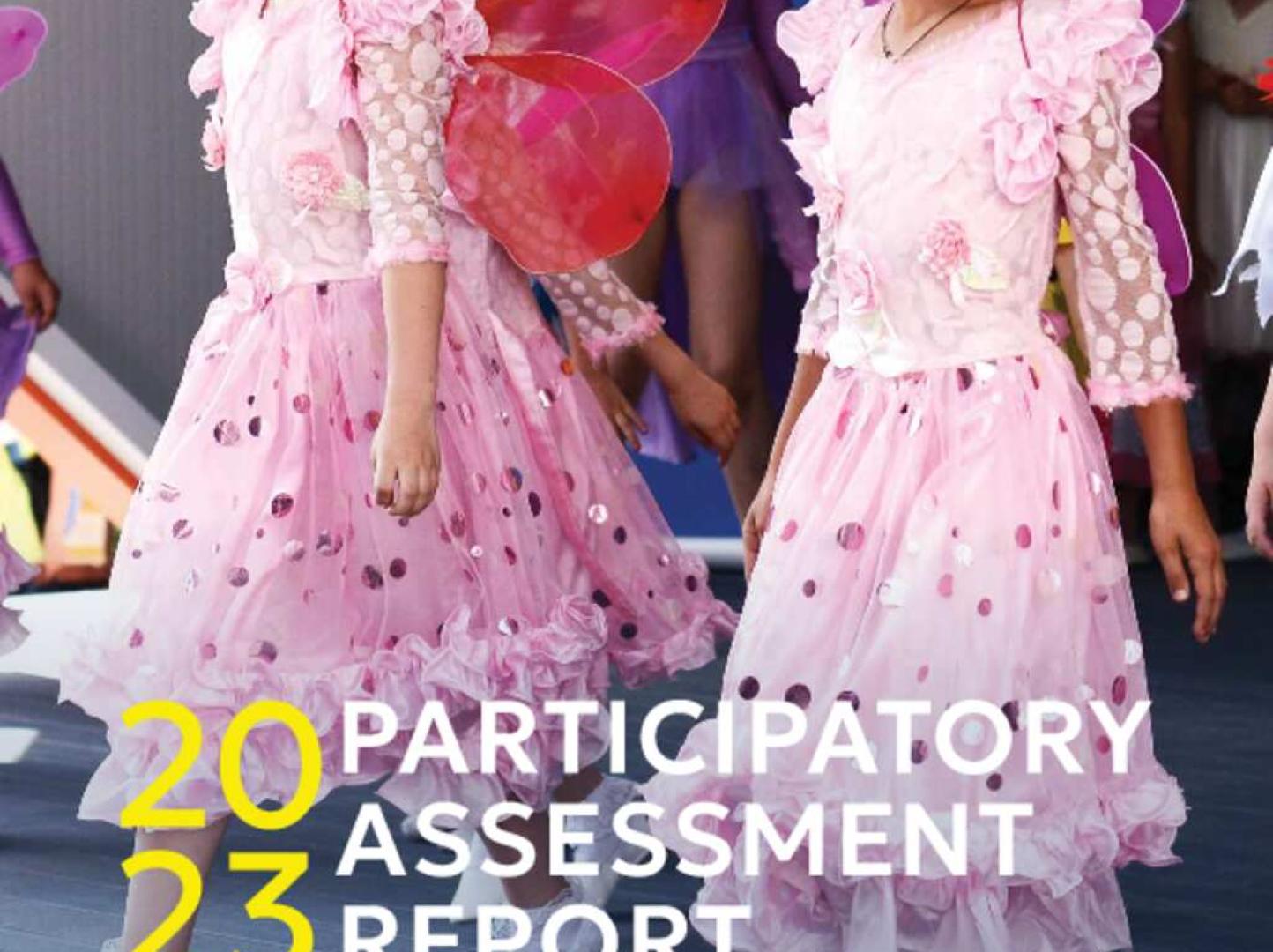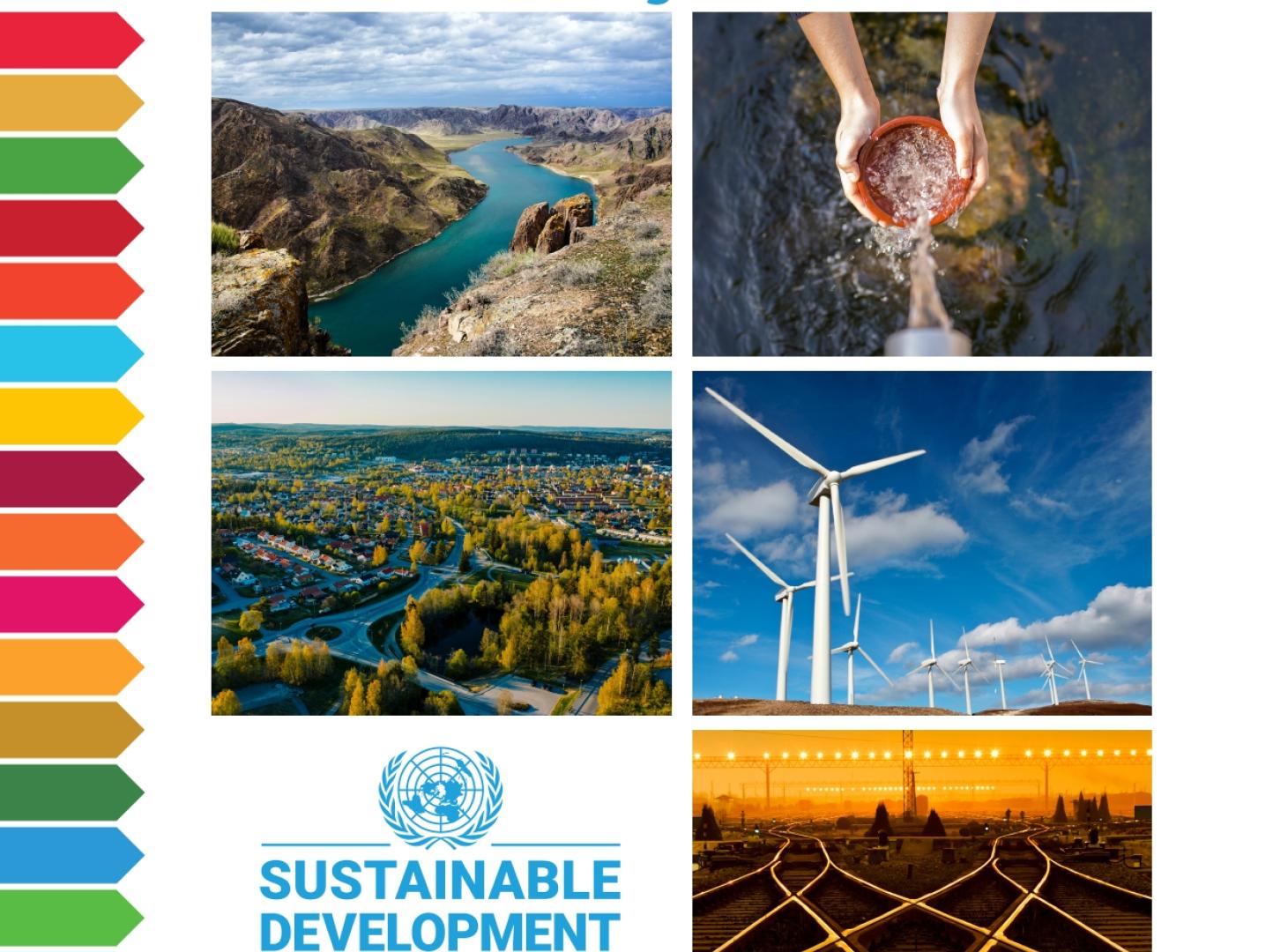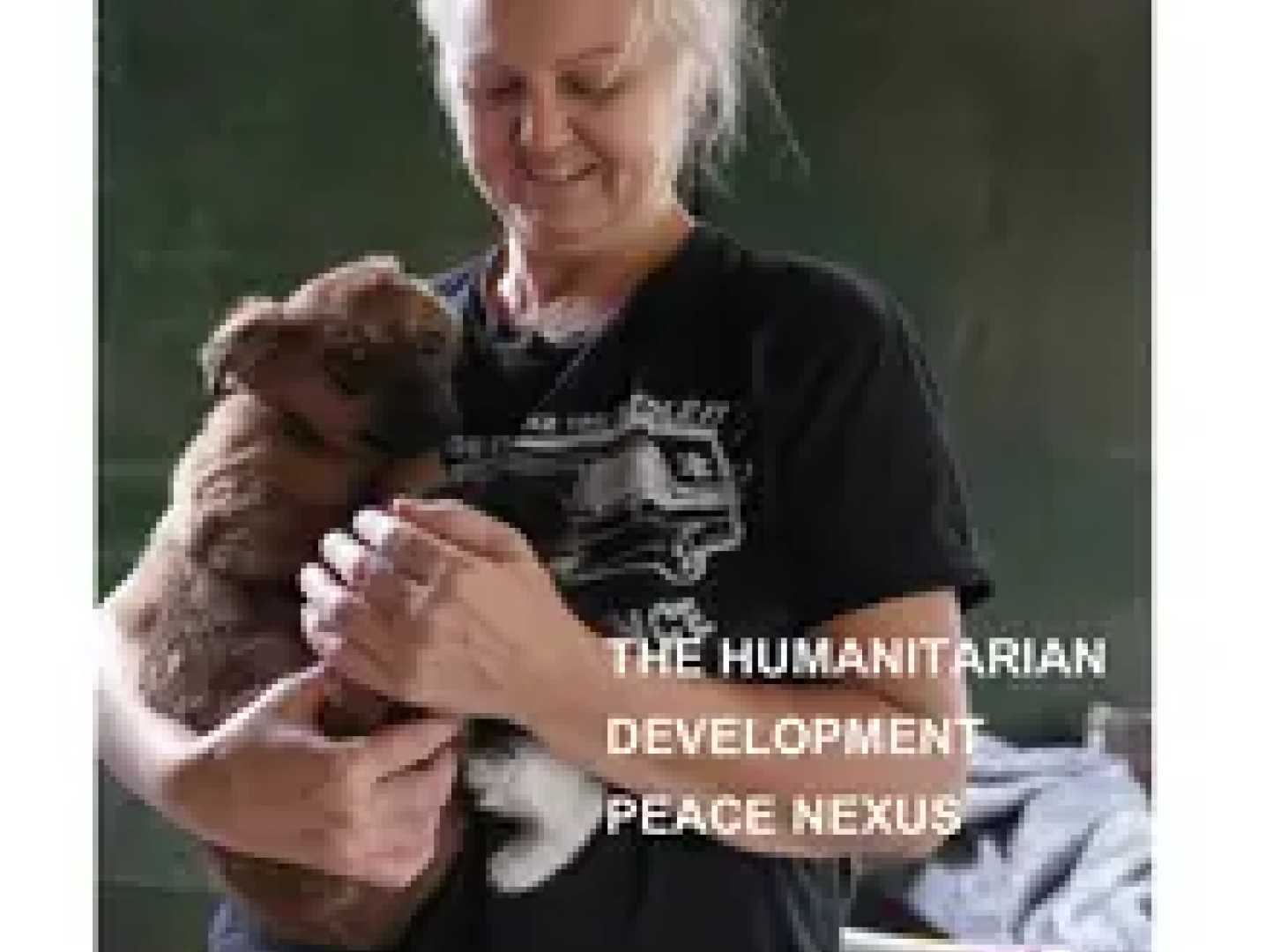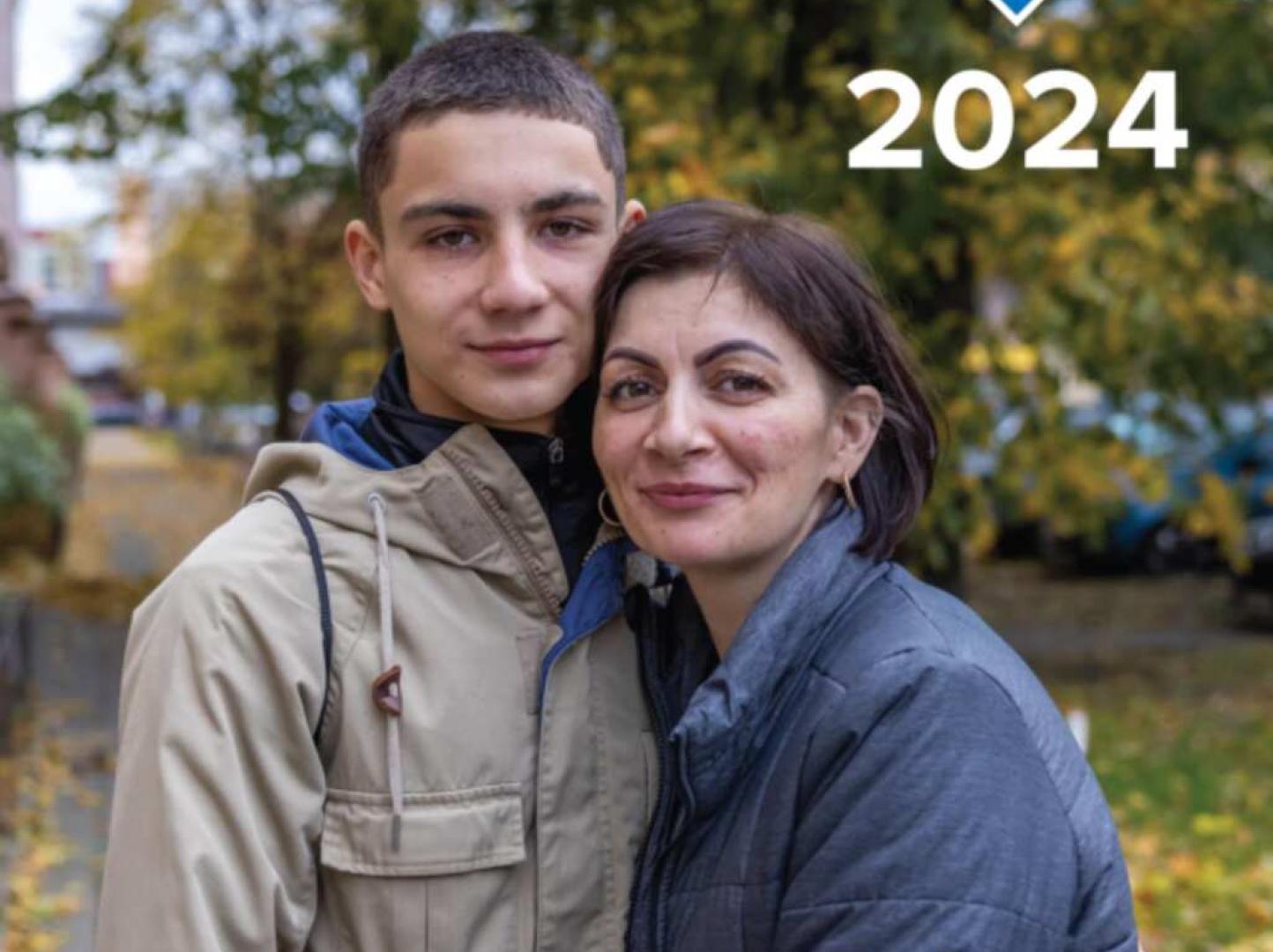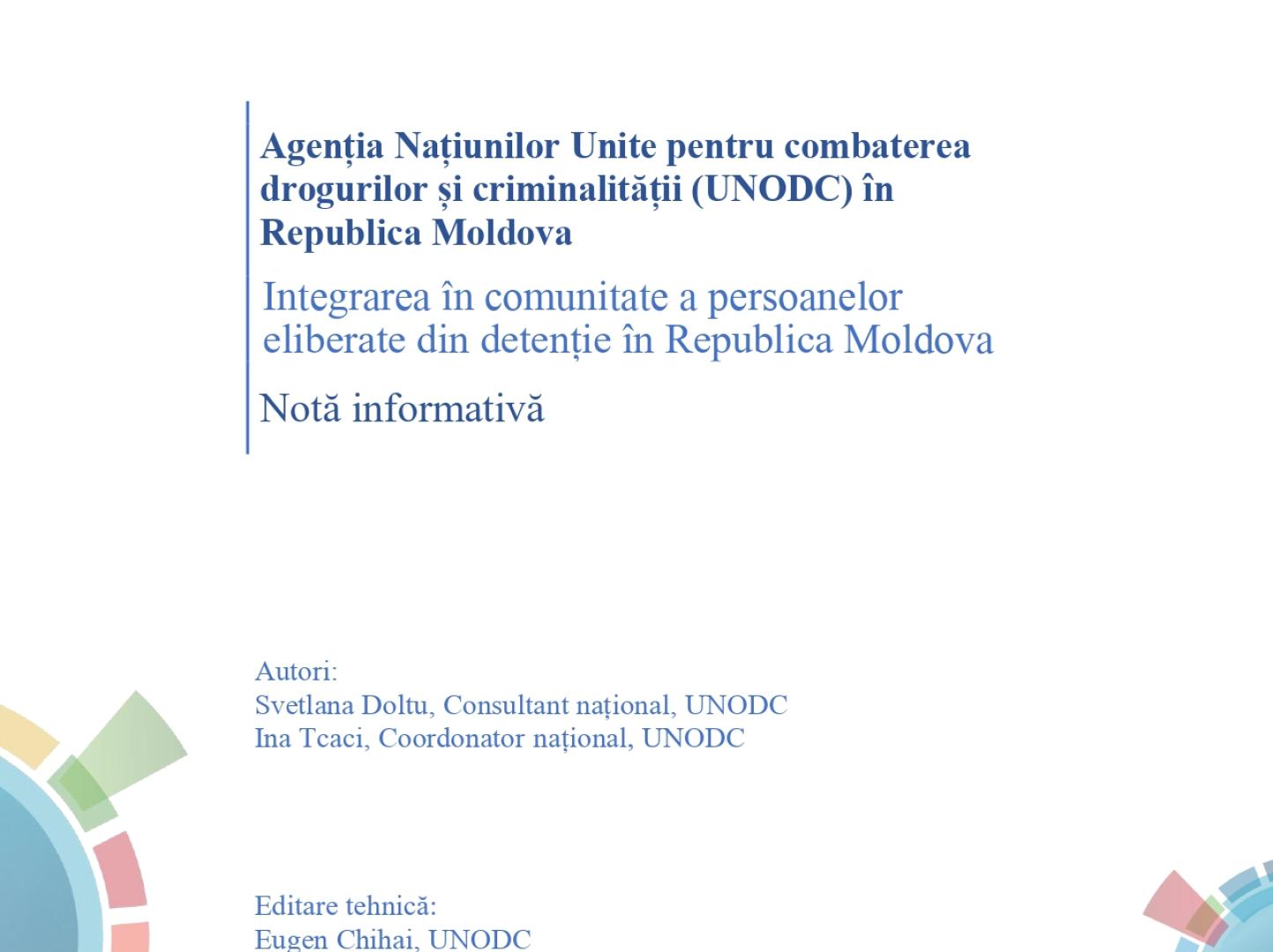Latest
Press Release
17 April 2024
ILO project organized a Validation Workshop of the Measures to support formalization of workers and enterprises in the Construction Sector
Learn more
Press Release
16 April 2024
The first on-site alternative childcare facility was inaugurated in the Republic of Moldova with the support of the International Labour Organization and the National Confederation of Employers
Learn more
Press Release
11 April 2024
ILO Director-General launches new EU-backed project to strengthen labour market institutions in Moldova, during first joint ILO-European Commission visit to the country
Learn more
Latest
The Sustainable Development Goals in Moldova
In September 2015, the Republic of Moldova, alongside with 192 Member States of the United Nations committed to implement the 2030 Agenda for Sustainable Development that provides a shared blueprint for peace and prosperity for people and the planet, now and into the future having at its heart the 17 Sustainable Development Goals (SDGs).
The National Development Strategy "European Moldova 2030" (NDS) as well as the Government Action Plan ”Building a European Moldova” describe the short, medium and long-term strategic development vision of the country synchronizing the priorities, objectives, indicators and targets of international commitments taken by the Republic of Moldova, including the ones set in the 2030 Agenda for Sustainable Development, to the national context.
The Sustainable Development Goals are being monitored and evaluated by the United Nations Country Team through the Country Results Reports developed in coordination with the Government.
As of 2022, the Government has committed to monitor and report annually on the level of achievement of the SDGs in the country which allows the state to make necessary interventions to adjust and/or accelerate the pace of SDGs implementation.
Publication
03 April 2024
2023 United Nations Country Annual Results Report, Republic of Moldova
In 2023, UN Moldova Country Team, formed of 24 UN agencies, funds programmes and other UN entities, together with its partners, made progress in all four strategic directions of its work, by advancing human rights and gender equality, strengthening institutional and governance capacities, improving the quality of education, health services, and social assistance, and enhancing local services and infrastructure, improving access to decent work, and promoting climate change resilient development.The year 2023 was marked by the launch of the new Sustainable Development Cooperation Framework 2023-2027 as well as Moldova being given the candidate status for the EU accession.Through a coordinate approach the UN Moldova assisted the country in reaching its national development objectives, aligning with the 2030 Agenda for Sustainable Development, and pursuing the aspiration of becoming a European Union country in the context of multiple crises generated by the war. “The UN remains a strong and reliable partner to the Government of Moldova. In 2023, the UNCT supported the launch of several ambitious social reforms, including Moldova's social assistance system reform, labour market reforms, and early childcare reform, aimed at improving the quality of life for vulnerable populations. At the heart of all our efforts, always, are the people of Moldova, particularly women, children and youth, persons with disabilities, refugees, migrants, old people, and others.” mentioned Simon Springett, Resident Coordinator of UN in Moldova.
1 of 5
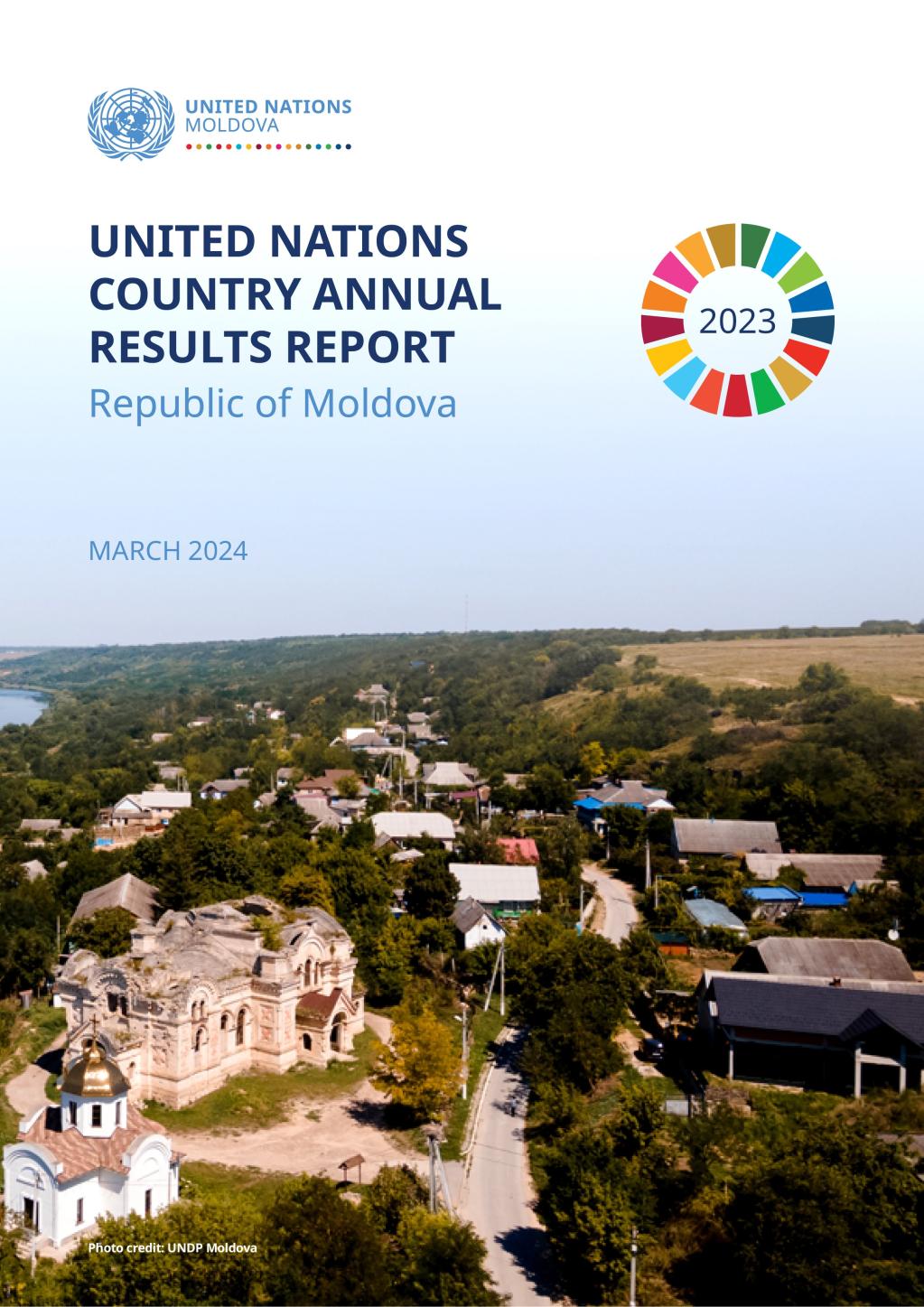
Publication
11 January 2024
Analysis of monetary poverty and wellbeing of households with children in 2022
The analytical report contains statistical information on the general characteristics of households with children according to the area of residence, number of children, type of household, quintiles, presence of migrants in households, their level of poverty and wellbeing.
The main source of information for the calculation of the standard set of poverty indicators is the Household Budget Survey (HBS), conducted by the National Bureau of Statistics. The main objective of the HBS is to determine multiple-aspect level of living standards of the population, including different socio-economic groups, in terms of income, expenditure, consumption, living conditions and other indicators that characterize the wellbeing of the population.
The report has been developed with the support of UNICEF Moldova.
The reports for the previous years can be found here.
1 of 5

Publication
30 January 2024
Social Cohesion and Food Security: Using the Moldova 2022 Social Cohesion and Reconciliation Index to inform how the United Nations World Food Programme’s activities can sustain social cohesion
This research aims to use data from the Moldova SCORE 2022 survey to strengthen the United Nations World Food Programme’s (WFP) evidence basis in Moldova, informing how WFP’s activities can sustain social cohesion between refugees and the host community, and whether WFP’s food security interventions can potentially contribute to social stability in general. This research is particularly prescient given the Nobel Peace Prize awarded to WFP in 2020 “for its efforts to combat hunger, for its contribution to bettering conditions for peace in conflict-affected areas and for acting as a diving force in efforts to prevent the use of hunger as a weapon of war and conflict”i. The research subsequently set out to identify linkages between food security and social cohesion in Moldova by answering two overarching research questions:
How does food security influence horizontal social cohesion, particularly regarding attitudes towards refugees from Ukraine?
How is access to resources linked to social stability and vertical cohesion?
1 of 5
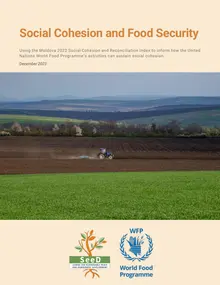
Publication
31 January 2024
Situation Analysis of Early Childhood Interventions (ECI) in the Republic of Moldova
This present Situation Analysis (SitAn) of Early Childhood Intervention in the Republic of Moldova describes the early childhood intervention (ECI) system, its programmes and services in the Republic of Moldova. The report provides evidence on national strengths and capacities, salient needs, and opportunities to establish and further support contemporary and sustainable programmes of ECI for children aged 0-3 years with developmental difficulties.
1 of 5
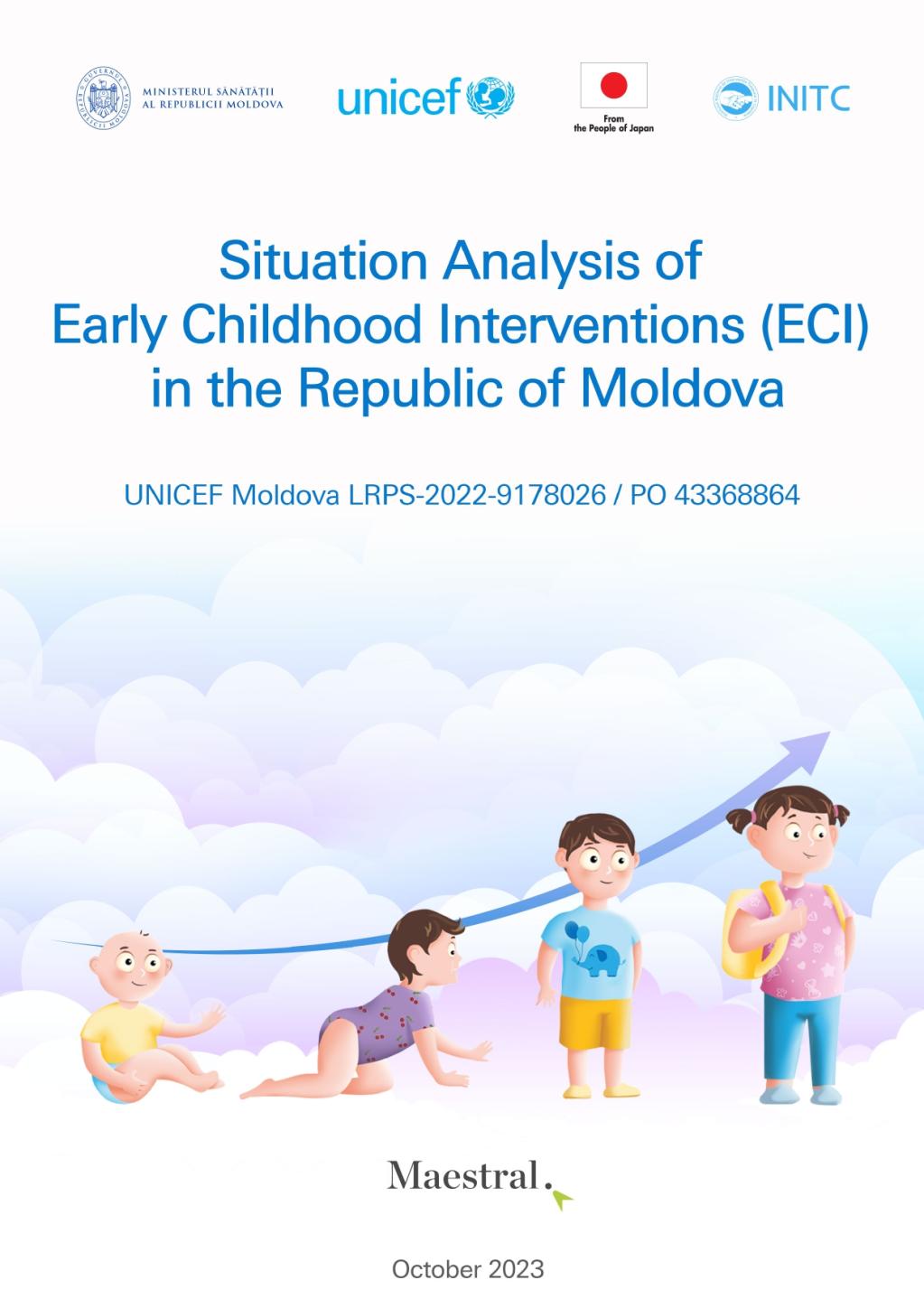
Publication
27 October 2023
A Moldovan case study: empowering parents and caregivers through gender-responsive family policies
In the Republic of Moldova, the unequal distribution of unpaid care work limits women’s full participation in the labor force. As of 2012, World Bank data showed that women in the Republic of Moldova were spending a fifth of their day on unpaid domestic and care work, nearly double the 11.3 percent of their day that men dedicated to these tasks.
This disparity hampers women’s opportunities to engage in full-time or higher-paying jobs. While the labor force participation rates of men in Eastern Europe and Central Asia region align with global trends, the figures for women display significant variation. Though some countries in Eastern Europe and Central Asia traditionally show a high rate of women’s participation in paid employment, the labour force participation rate of women in the Republic of Moldova stands at a relatively low 54 percent. This discrepancy underscores the challenges women face in reconciling unpaid work responsibilities with accessing labour market opportunities.
To address this issue, the Expanding Choices project in the Republic of Moldova adopts a rights-based and gender-transformative approach. This approach seeks to challenge and alter entrenched harmful gender norms and power structures that restrict women’s choices and opportunities. It strives to foster women’s economic empowerment and gender equality by advocating for women’s rights and agency, including their right to work, access to education and training, and participate in decision-making processes.
1 of 5
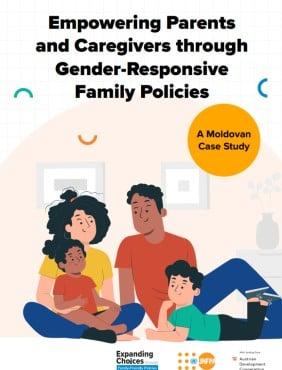
Story
09 April 2024
Nadejda found hope in a high school from Cahul
"It was an ordinary February day. I was getting ready for school, but then I saw the news and realized something terrible was happening. I was afraid that the missiles might hit our house too," said Nadejda from Berezovca city, Odessa region, recalling he first day of war in Ukraine, 24 February 2022.Nadejda, 16, fled to Moldova two years ago with her mother and sisters - Varvara, 10, and Anastasia, 21."From Berezovca, we came by minibus to Odessa and then by bus to the border with Moldova. It was a big bus with many people who, like us, were seeking hope", Nadejda told us.Although they hoped that the situation would improve, the fear that a missile would destroy their home and lives forced them to leave their country and seek peace in Moldova. They arrived in Moldova on 24 March 2022, after four weeks of fear spent in the basement of the building where they lived."The alarms were ringing day and night. We hid almost every day. When we realized that the situation was getting worse, we decided to move temporarily to Moldova, to my mother's parents in Cantemir. They hosted us when we just arrived”, the adolescent girl told us.In Moldova, Nadejda continued to attend online lessons with her teachers from Berezovca. Also online, she graduated 9th grade."Now I am in the 11th grade at Dimitrie Cantemir High School in Cahul. My younger sister also studies here, and my elder sister returned to Ukraine, where my second grandmother also lives. There is no one in our house anymore, but at least we know that missiles didn't damage it."At her current high school, Nadejda and her classmates spend a lot of time in the EDUTech lab, where most lessons are held.EDUTech lab are learning spaces that provide non-formal and formal education activities, recreational activities such as music, drawing, sports games, chess competitions, Romanian, English, and STEM (Science, Technology, Engineering, Mathematics) lessons, as well as support for student who connect to the Ukrainian Ministry of Education platforms developed for children who are learning remotely due to the war.This is one of 81 EDUTech labs nationwide, established by UNICEF and the Ministry of Education and Research."Now, we're having an IT lesson here. Last year, we studied web design, and each student did a digital project - developing a website. My project is about constellations," Nadejda tells us enthusiastically.EDUTech labs are equipped with modern IT equipment, and teachers are trained in child protection, inclusive education, and gender-based violence prevention. They learn how to provide psychosocial first aid, report cases of child abuse and neglect, and benefited from training in IT and innovative digital learning."In the EDUTech lab, it's different - we have these unusual desks, an interactive whiteboard, and modern computers. Here, I have everything, even more than in Ukraine. My classmates accepted me easily into their group. I feel comfortable here," she added.More than 550 children study at the Dimitrie Cantemir High School in Cahul, including 25 refugee children from Ukraine. Currently, more than two thousand Ukrainian refugee children are enrolled in Moldovan schools and kindergartens.Nadejda plans to graduate in Cahul and continue her studies at a university in Moldova or abroad."I would like to become a veterinarian - I love animals. I also had a puppy, who is now in my grandmother's care. But I'm also thinking of becoming a designer - I'm good at color composition and drawing," she said.Moldova has become a new home for Nadejda and thousands of other children and their families from Ukraine for the past two years. In Cahul, Nadejda and her family have successfully integrated and even discovered places for their soul."Here, I like to go to bookstores. In Berezovca, we didn't have book shops," the teenager said.Although she is not sure if she will ever return home to Ukraine, Nadejda hopes that the war will end soon. She is glad to have the opportunity to continue her studies and benefit from all the modern learning opportunities that EDUTech labs offer.In Moldova, Nadejda discovered that her name, translated from Russian, means "hope," which encourages her to believe in her bright future when she can see her friends, relatives, and the house where she grew up.The EDUTech laboratories were established thanks to the financial support of the Government of the United Kingdom, the Government of Italy and Education Cannot Wait, in the context of the emergency response to the refugee crisis.
1 of 5
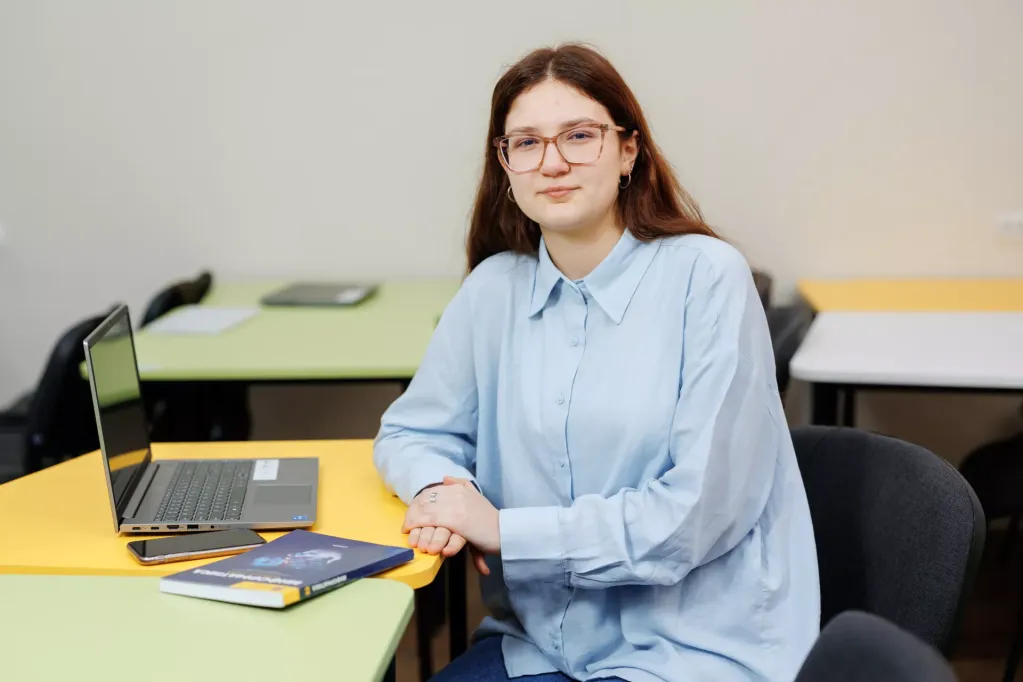
Story
09 April 2024
The grapes from Petru Mihov's vineyards reach the European market
The business he manages has almost two thousand hectares and over 130 varieties of local grapes, as well as from other parts of the world such as the USA, Ukraine, Turkey, Italy."Our company is multi-branch. We also have big culture, that is phytotechnics, but we also have perennial plantations, orchards, cherries, apples and pears. We also have a large viticulture sector, which is composed of 40 hectares of table grapes and approximately 70 hectares of technical grapes for wine," mentions Petru Mihov.To make his vineyard more resistant to external factors, Petru Mihov installed a water pumping station and an irrigation system worth 29,500 euros.“We purchased a diesel pump to pump water from the storage pond into the irrigation system and a fertigation point, which consists of filters and fertigation nodes, which we use to introduce fertilizers. Due to the fact that we introduced the given investment, our productivity has increased twice,” notes Petru Mihov.The assistance came from "EU4Moldova: Focal Regions" programme financed by the European Union and implemented by UNDP and UNICEF.At the moment, Petru Mihov's company has 156 employees, apart from seasonal workers, whom they invite during the grape harvest. The company also exports table grapes to Romania, France and other European countries.
1 of 5
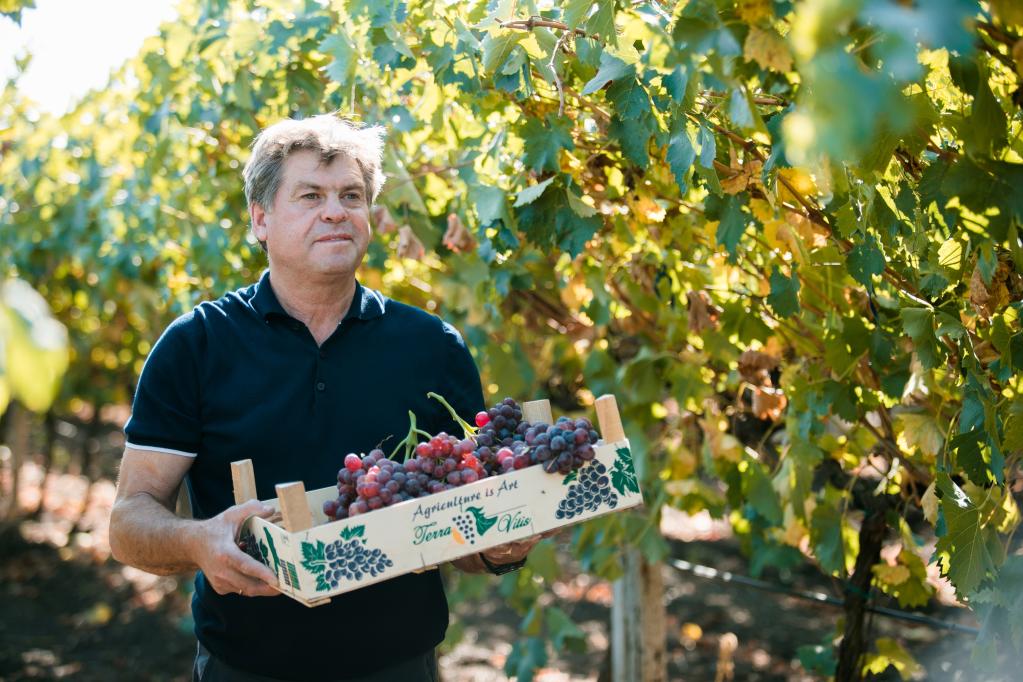
Story
09 April 2024
In the words of Victoria Lungu: "Investing in women is a central pillar of social development."
Thanks to Victoria and her colleagues, Ophelia opened a Women's Resilience Center in Roșu village of Cahul district in November 2023. The center's goal is to support women survivors of gender-based violence and those at risk of abuse, including refugees as well as women from host communities. Victoria's motivation to establish Ophelia stems from her desire to help foster a society free of violence, where every woman and girl lives in a safe and equitable environment."Ophelia was founded by me and my colleagues, Maria and Victoria, with the purpose of preventing and combating domestic and gender-based violence. At that time, there was no other organization in southern Moldova providing assistance in this field. My motivation comes from personal reasons and the desire to see society progress into one where every woman and girl feels safe. Thus, with the support of UN Women, we managed to open the Ophelia Women's Resilience Center in Cahul district.Although it's a young organization, we have already implemented projects that provide psychological support to women victims of domestic violence, including refugee women from Ukraine. Moreover, we address all women in distress, not only victims of domestic violence, because women face different situations and have specific needs. As a result, our organization's activity is not limited to direct assistance through specialized services, such as social assistance, legal and psychological counseling, but also includes economic empowerment activities, financial support and social integration. Special importance is given to activities that allow women to share their experiences and learn from each other. Similarly, we organize activities related to parenting and education, considering that at some stage in their discussions, women bring up concerns related to the care and development of children.Currently, we are in the stage of identifying the necessary resources to offer a wide range of services within the center and to expand the scope of our economic empowerment programme. Besides offering personal development courses and insight into personal branding and social media, we aim to support women in starting their own businesses or developing professional skills that facilitate their access to the labor market. By offering psychological and legal support, we hope to encourage them towards achieving financial independence.This project would not have been possible without the support of UN Women. Identifying programmes that include infrastructure development is a significant challenge. First and foremost, it is essential to have the appropriate infrastructure and conditions to provide quality services. This means suitable workspaces and equipment. Thus, we managed not only to arrange a room dedicated to women's activities but also a child-friendly space. Mothers attending our activities can come with their children, who benefit from a room equipped with toys, a library and everything necessary for them to spend time in a pleasant way. This allows mothers to focus on the courses without being concerned about their children's immediate needs.The main goal of Ophelia is to support women and children, finding innovative and effective solutions to address their complex needs. Community involvement in our initiatives demonstrates a common desire for improving social conditions, including in educational environments where violence is becoming an increasingly significant concern.We firmly believe that investing in women is a central pillar of social development, and supporting intelligent, hardworking, and responsible women is essential for realizing their dreams and, as a result, creating a healthier society. Empowering women leads to a reduction in violence and strengthens the family as the nucleus of society, laying the groundwork for a better and more equitable generation."The Women's Resilience Center was established through a partnership between Ophelia, the National Coalition "Life without Violence" and the non-governmental organizations DACIA Youth Resource Center and Help Moldova, within the project "Promoting a Gender-Sensitive Humanitarian Response at National and Regional Levels," implemented by UN Women Moldova and funded by the United States government.
1 of 5
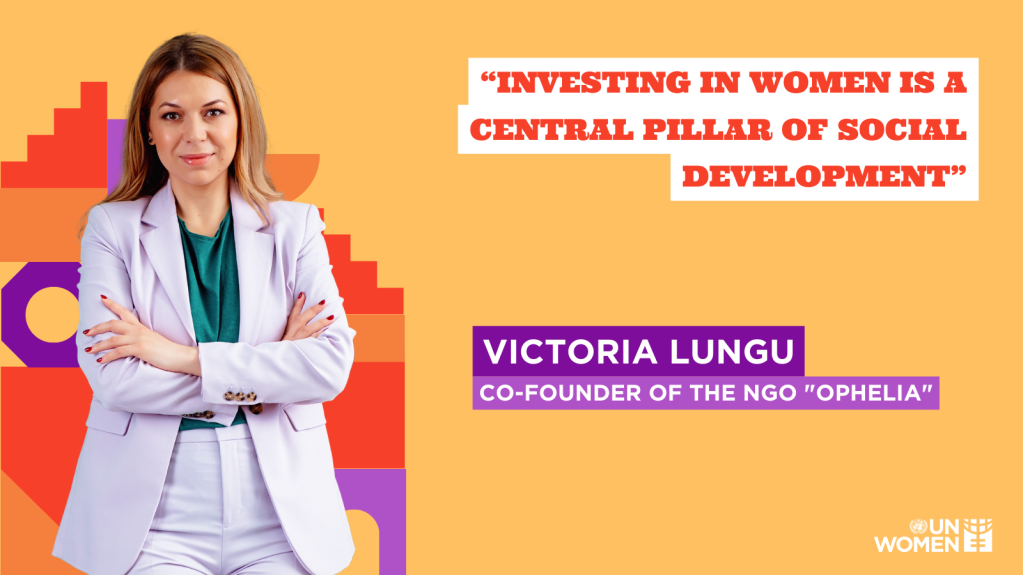
Story
09 April 2024
A canteen in Ungheni is being modernized with the support of the EU and UNDP Moldova
The canteen has a diverse environment, with dishes from both traditional and other cultures.In 2022, the canteen managed by Arcadie Babin benefited from assistance worth 24,000 euros.The investment was directed towards the purchase of modern equipment for refitting the canteen. Thus, state-of-the-art rollers and electric hobs were purchased, which offer more comfort and allow several dishes to be prepared at the same time."The business increased a lot, thanks to the project. We have a greater flow of people and companies that we serve," says Arcadie Babin.Thanks to this investment, Arcadie Babin hired three more people, and now 12 people work in the canteen. The support received from the "EU4Moldva: Focal Regions" programme contributed to the consolidation of the business, and in the future Arcadie Babin plans to expand his business to other sectors of the city.Arcadie Babin is one of the 75 entrepreneurs from Cahul and Ungheni regions who benefited from assistance from the "EU4Moldova: Focal Regions" programme, financed by the European Union and implemented by UNDP and UNICEF.
1 of 5
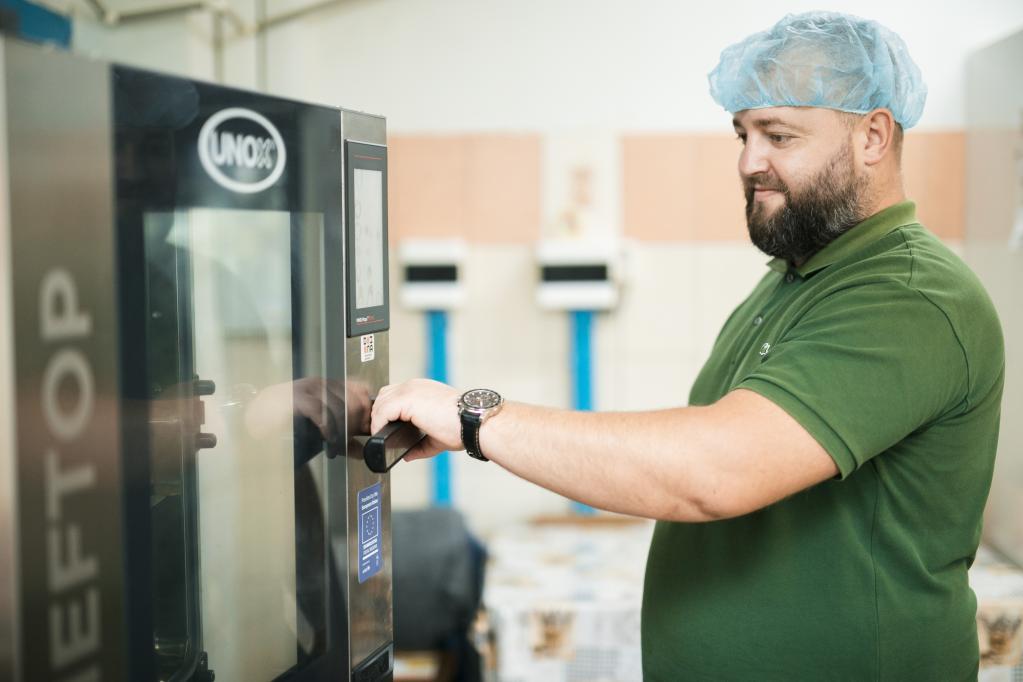
Story
09 April 2024
Diana Beșliu, manager of a "sweet" business in Ungheni
"First, we had a production lab, where we only made cakes to order. At some point, we came to the idea that we need to develop. Then, we decided to turn to the project. Today we have a wide range of pastries. They are divided into two categories: serial products and those made to order," says Diana Beșliu.In 2022, Diana Beșliu benefited from assistance worth 13,960 euros through the "EU4Moldova: Focal Regions" programme, financed by the European Union and implemented by UNDP and UNICEF.The investment was directed towards the purchase of a modern display case, the renovation of the patio furniture and the procurement of a thermal shock freezer."Thanks to the project, our business has grown, because with the help of the purchased machine we have been able to make more use of the products we make. As for the expansion plans, we are already in the process. We are moving slowly but surely towards a more prosperous future. I'm glad that I now own such a beautiful business and that thanks to the project I can develop here, at our home," notes the entrepreneur.The cafe currently employs 13 people and has a wide range of pastries.
1 of 5
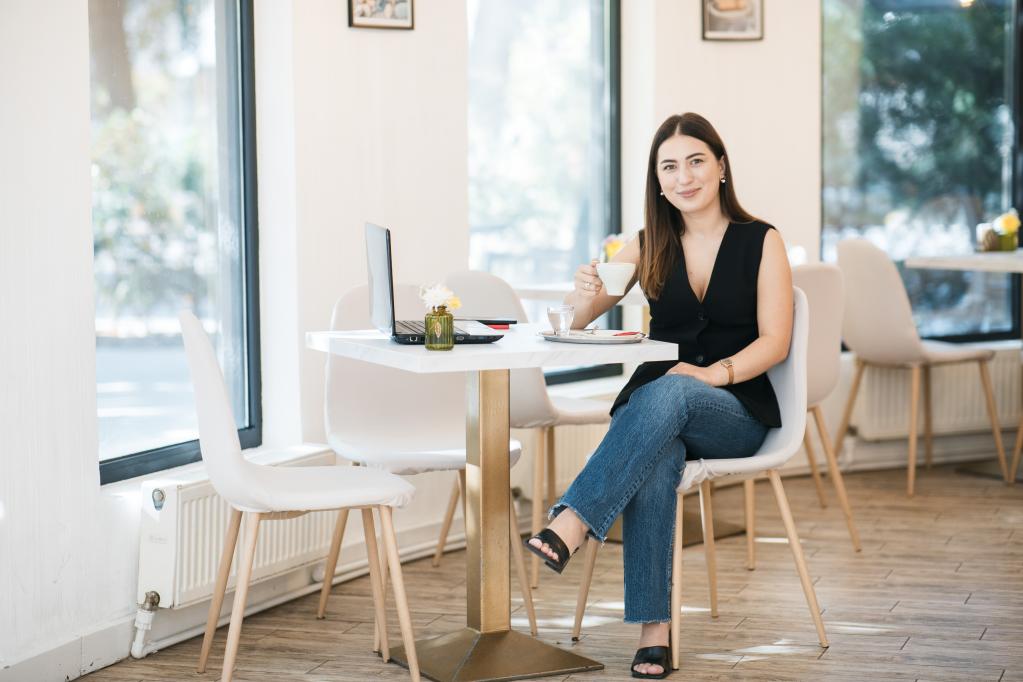
Press Release
17 April 2024
ILO project organized a Validation Workshop of the Measures to support formalization of workers and enterprises in the Construction Sector
The event was attended by members of the Tripartite Committee in the construction sector, representatives of the Ministry of Labor and Social Protection (MLSP), Ministry of Economic Development and Digitalization (MDED), Ministry of Finance, National Bureau of Statistics, ODA, ILO specialists and the representatives of other relevant national organizations and authorities.The main findings of the diagnosis of informality in the construction sector were shared, and the potential measures to tackle it and encourage transition to formality of workers and enterprises were discussed.In 2022, the proportion of informal employment relative to total employment in the construction sector of Moldova stood at 66.3%, three times higher than that of the national economy. Notably, informality in the construction sector exhibits structural differences compared to the overall economy. While nationally, the share of informal employment in informal enterprises was 74.6% in 2022, it surged significantly higher to 98.2% within the construction sector. Consequently, nearly all informal employment within the construction sector occurs outside of formal agreements, with no involvement of paid domestic workers in this domain.Examining informality from a segment perspective reveals that the highest rate is observed in rural areas, where approximately 3 out of 4 employees (74.1%) operate outside of formal arrangements. Additionally, the informality rate among men working in construction (69.0%) is nearly double that of women (35.3%).The diagnosis, recently carried out using the methodological recommendations of the ILO, included a mapping of relevant actors involved in informality in the construction sector. Based on the quantitative and qualitative data gathered, eleven formalization topics were identified.The workshop participants noted that the results of the analysis provide a better understanding of the situation and a possibility to discuss the measures to support transition to formality of workers and enterprises.According to Ms Corina Ajder, the State Secretary of the Ministry of Labour and Social Protection, the the workshop aims at facilitating the validation of the results by the tripartite committee in the construction sector, which will also explore the next steps, including some recommendations for a sectoral formalization strategy and a road map. "The ILO has been engaged in an effort of carrying out a systemic analysis and designing practical initiatives, aimed at encouraging formalization of workers an enterprises. Finally, the analysis will support the development of short-term interventions that will be piloted with the support of the ILO", stated Corina Ajder.The ILO Project, with the financial support of the Swiss State Secretariat for Economic Affairs (SECO) will continue to provide technical advice to the tripartite partners to build consensus to design and implement measures to tackle the undeclared work, envelope wages and help micro- and small enterprises, and workers in the formalization process.For more details, please contact: Violeta Vrabie, ILO project coordinator, email: vrabie@ilo.org, tel.: + (373) 78 11 33 90
1 of 5
Press Release
16 April 2024
The first on-site alternative childcare facility was inaugurated in the Republic of Moldova with the support of the International Labour Organization and the National Confederation of Employers
Orange Moldova, with the support of the International Labour Organization and the National Confederation of Employers of the Republic of Moldova, has launched Orange Kids. The facility, set up according to regulatory standards, will provide a friendly environment tailored to the needs of children, including rest areas, recreational activities, and a special place for socializing and playing while parents are at work."I am pleased that with our move to the new Orange headquarters, we can support even more employees with young children to work from the office when needed. Also, I am proud that we are the first company in Moldova to have the courage to implement this project and hope to set an example of best practices for other local businesses," said Olga SURUGIU, CEO of Orange Moldova.Parents strive to balance professional and family responsibilities. The reality is that often women have to give up their careers because they do not have a solution for childcare. "Over 50% of working-age women in the Republic of Moldova stay at home, taking care of children, although they are highly qualified," pointed out Claire Harasty, Director DWT/CO-Budapest, International Labour Organization.Studies show that providing childcare benefits in the workplace leads to increased motivation, improved performance, and staff retention, especially among female employees. Employee turnover can be reduced by 50%."I have always had this dream to help parents in the Republic of Moldova balance professional and family life. Because investments in this field have been lacking, we currently have over 150,000 women out of work, and I believe that such initiatives will serve as examples for other companies," said Minister of Labour and Social Protection, Alexei Buzu."We were thinking about what to associate with the brand of the Republic of Moldova. Digitalization is associated with Estonia. Child-friendly policies are attributed to countries in the Nordic region. We aim and aspire to be like the Nordic countries in this regard for the Eastern European region and thus increase the participation rate of women in the labor market," stated Minister of Education and Research, Dan Perciun.These statements were confirmed by the Swedish Ambassador to the Republic of Moldova, Katarina Fried, whose country supports this program in the Republic of Moldova. "These investments mean not only contributions to family income but also to the country's economy. It is important to ensure that our children feel well during the time we are at work."It was not an easy process. Many entrepreneurs wanted to participate but gave up along the way. Orange was among the few brave ones to launch this initiative, mentioned Leonid Cerescu, President of the National Confederation of Employers' Organizations of the Republic of Moldova.The Orange Kids space will benefit 600 children of Orange Moldova employees, aged between 2-8 years old, in accordance with prior registration.Gheorghe and Ana Luchian work at Orange Moldova and say that this space will allow them to be present at the office while being close to their daughter at the same time. "For our daughter Eva, this project means a modern space, adapted to the needs and safety standards for children. Additionally, Orange Kids saves us from additional expenses for a nanny or private kindergarten, as we are not accepted at the state kindergarten at the age of 2."For Cătălina Burcovschi, an Orange employee, the launch of Orange Kids is also an important aid "because our 2.9 year old daughter needs communication, and this project will help her build relationships with other children, develop communication skills, and fit in more easily at kindergarten. An enormous advantage is also the fact that I will be able to work alongside her peacefully, knowing that she is in the care of responsible individuals."This service has emerged because in the Republic of Moldova, only 15% of children aged up to 3 years old are enrolled in preschool education institutions. Due to the lack of alternative childcare services for children under the age of 3, 53.6% of the population of the Republic of Moldova, mainly women aged between 25 and 34, are inactive due to family responsibilities.The Orange Kids pilot project was implemented by Orange Moldova, with the support of the International Labour Organization (ILO) and the Confederation of Employers of the Republic of Moldova (CNPM), with financial support from Sweden.
1 of 5
Press Release
11 April 2024
ILO Director-General launches new EU-backed project to strengthen labour market institutions in Moldova, during first joint ILO-European Commission visit to the country
ILO Director-General, Gilbert F. Houngbo announced the launch of an ILO project to accompany reforms in key labour market institutions in the Republic of Moldova, all of which will support the process of aligning the country’s labour legislation with international labour standards and related EU acquis at a crucial time when the country is aiming to achieve EU Accession by 2030. The announcement came as the Director General wrapped up a rare two-day joint visit to the country with EU Commissioner for Jobs and Social Rights, Mr. Nicolas Schmidt.“I have come to Moldova for the second time to re-affirm to our tripartite constituents that the ILO is fully committed to work with them in improving access to more and better employment opportunities building an inclusive and fair labour market. I would like to thank the European Commission for their support in our common objective to advance decent work in Moldova,” said the ILO Director-General.“As Moldova prepares to join the EU, this is a great opportunity to boost its labour market and social protection systems. Ultimately, Moldova’s wealth is its people: by investing in their skills, by creating quality jobs, and by combatting poverty and social exclusion, you get a win-win: for social inclusion and for the economy. I am proud to launch the new EU-ILO project today together with ILO DG Houngbo, to improve job prospects and make Moldova a more inclusive and prosperous country, ahead of its accession to the EU”, said Mr. Nicolas Schmidt.Mr. Houngbo also held talks with Her Excellency Maia Sandu, the President of the Republic of Moldova, His Excellency Dorin Recean, the Prime Minister, Mr. Mihai Popsoi, Deputy Prime Minister and Minister of Foreign Affairs, and Mr. Alexei Buzu, Minister of Labour and Social Protection. Discussions focused on the ILO’s continued support in mitigating the impact of the multiple crises on the Moldovan labour market, including the war in neighbouring Ukraine. Moldova currently hosts 115,000 Ukrainian refugees. Discussions also covered the support needed for the EU accession process.The Director-General also met with Igor Zubcu, President of the National Confederation of Trade Unions, and Leonid Cerescu, President of the National Confederation of Employers, during which he reassured the social partners of continued ILO support in fostering social dialogue and institutional capacity-building.“My message is clear: the path to effective and inclusive policymaking runs through strong social dialogue between the government and employers’ and workers’ organisations. The ILO stands ready to help our constituents in the Republic of Moldova deepen their consultations, cooperation, and negotiations. Social dialogue is even more crucial, as Moldova works towards accession to the European Union,” explained DG Houngbo. Moldova’s many challenges include high levels of migration from Ukraine, demographic transition, high energy prices, lack of quality jobs and persistent informality. Ongoing ILO work in Moldova includes support to employment creation, improving working conditions through formalization of the informal economy, strengthening of social dialogue, enhancing childcare provision, gender equality and non-discrimination, countering violence and harassment in the workplace, and promoting skills development, including green skills. The ILO is also providing technical support to the reform of the National Employment Agency and the State Labour Inspectorate.***********For Media Inquiries please contact: Ala Lipciu, ILO Moldova National Coordinator, lipciu@ilo.org. Iuliana Moga, Project Coordinator of “EU support to inclusive labour markets in the Republic of Moldova”, moga@ilo.org
1 of 5
Press Release
11 April 2024
New UN report calls for trillions more in development investment to rescue Sustainable Development Goals
The 2024 Financing for Sustainable Development Report: Financing for Development at a Crossroads (FSDR 2024) says urgent steps are needed to mobilise financing at scale to close the development financing gap, now estimated at USD 4.2 trillion annually, up from USD 2.5 trillion before the COVID-19 pandemic. Meanwhile, rising geopolitical tensions, climate disasters and a global cost-of-living crisis have hit billions of people, battering progress on healthcare, education, and other development targets.“This report is yet another proof of how far we still need to go and how fast we need to act to achieve the 2030 Agenda for Sustainable Development,” said UN Deputy Secretary-General Amina J. Mohammed. “We are truly at a crossroads and time is running out. Leaders must go beyond mere rhetoric and deliver on their promises. Without adequate financing, the 2030 targets cannot be met.”With only six years remaining to achieve the SDGs, hard-won development gains are being reversed, particularly in the poorest countries. If current trends continue, the UN estimates that almost 600 million people will continue to live in extreme poverty in 2030 and beyond, more than half of them women.“We’re experiencing a sustainable development crisis, to which inequalities, inflation, debt, conflicts and climate disasters have all contributed,” said UN Under-Secretary-General for Economic and Social Affairs Li Junhua. “Resources are needed to address this, and the money is there. Billions of dollars are lost annually from tax avoidance and evasion, and fossil fuel subsidies are in the trillions. Globally, there is no shortage of money; rather, a shortage of will and commitment.”According to the report debt burdens and rising borrowing costs are large contributors to the crisis. Estimates are that in the least developed countries debt service will be USD 40 billion annually between 2023 and 2025, up more than 50 per cent from USD 26 billion in 2022. Stronger and more frequent climate related disasters account for more than half of the debt upsurge in vulnerable countries. The poorest countries now spend 12 per cent of their revenues on interest payments -- four times more than they spent a decade ago. Roughly 40 per cent of the global population live in countries where governments spend more on interest payments than on education or health.While investment in SDG sectors had grown steadily in the early 2000s, major sources of development funding are now slowing down. For example, domestic revenue growth has stalled since 2010, especially in LDCs and other low-income countries, in part due to tax evasion and avoidance. Corporate income tax rates are falling, with global average tax rates down from 28.2 per cent in 2000 to 21.1 per cent in 2023, due to globalization and tax competition.Meanwhile, Official Development Assistance from OECD countries and climate finance commitments are not being met. While ODA increased to an all-time high in 2022, reaching USD 211 billion, from USD 185.9 billion in 2021, much of the growth came from aid to refugees living in donor countries, and the total amount is inadequate for development. Only four countries met the UN aid target of 0.7 per cent of GNI in 2022. The report concludes that the international financial system, which was set up at the 1944 Bretton Woods Conference, is no longer fit for purpose. It proposes a new coherent system that is better equipped to respond to crises, scales up investment in the SDGs especially through stronger multilateral development banks, and improves the global safety net for all countries.The report points to the UN Summit of the Future in September 2024 as a crucial opportunity to change course. It highlights the June 2025 Fourth International Conference on Financing for Development (FfD4) as the critical moment for countries to commit to closing the development financing gap and invest in achieving the SDGs.FfD4 is an opportunity for countries to:Close credibility gaps and rebuild trust in multilateralism.Close financing and investment gaps, at scale and with urgency.Reform and modernize the outdated international financial architecture and adjust international rules for trade, investment and finance.Formulate and finance new development pathways to deliver on the SDGs and ensure no one is left behind.“Without global cooperation, targeted financing, and, crucially, the political will, the world will not achieve the SDGs,” said Deputy Secretary-General Mohammed. “The clock is ticking. Between now and next year’s FfD4 Conference, we have a once-in-80-year opportunity to comprehensively reform the financial architecture, and a last chance to correct course before 2030. History will not be kind to those with the power to act who fail to do so, while the clock winds down on the planet and its people.”
1 of 5
Press Release
09 April 2024
358 agricultural producers from 16 districts learned how they can use energy efficiency technologies and solutions in agriculture
"I noticed a major interest. There were a lot of questions. The need to know information about this field, but also the need to use energy-efficient technologies is very high," says Sergiu Robu, expert in energy efficiency.Participants learned how to adopt renewable energy sources and what challenges to expect; how the principles of sustainable development can be applied to ensure a sustainable energy future; which technologies can improve energy efficiency in the agricultural sector; what are the advantages and how microenergy can be used as a flexible solution in the specific context of agriculture, but also how to calculate the return on their own in the use of energy efficiency technologies."Renewable sources are expensive in general, although they are becoming more accessible every year, but small businesses, small agricultural producers cannot afford such investments on their own. If they are supported by development partners, the payback period of an installation decreases from 14 to 3 years. This is very motivating for farmers," explains expert Sergiu Robu."This information session is very useful for us and it came just in time, as we intend to install solar panels, but we were not very informed. We found out, for example, what are the advantages and disadvantages of different types of solar panels. Until now, this information was completely unknown to me, I could not have made a correct decision. I also understood what types of inverters there are and what are the differences between them," says Viorica Guțu from Sîngerei, who grows cereals with her husband.They intend to develop the direction of processing, to produce feed for rabbits and other animals. They have agricultural machinery, a production warehouse, but the room is not heated, it has no working conditions, plus the machinery for processing will consume energy, that is why they are interested in energy efficient solutions.Casapciuc Veaceslav from Zarojeni village, Florești district, has been farming for more than 20 years. He grows wheat, corn and sunflowers on 80 hectares of land, which is not much, he says. "It's interesting and I like the land, if you don't like it, you can't be a farmer," Veaceslav is convinced, although he admits that it's not easy to be a farmer, especially when the earnings barely cover the loan installments and there is nothing left for investment, as has happened in the last two years. Together with his wife, they also grow vegetables in the greenhouse and have been planning to install photovoltaic panels for several years, but they have not been able to raise the necessary money. He came to the training session hoping to find out "how best to do it", that he doesn't know the technical aspects either, but he knows that something has to be done because "if many of us are going to use energy efficiency measures, we will reduce energy costs, which will increase farmers' income, increase the efficiency of our businesses, improve the environment, quality of life and build a better future for our children here at home!"Victoria Cazacu manages two family businesses in Prajila commune, Florești district. Two years ago, she returned for good from abroad, including to help her family develop their business and she says they planned to bring other relatives back home as they need workers. They mostly grow vegetables and greens and have 20 permanent and up to 60 seasonal employees. They recently purchased an industrial refrigerator and a dryer, but they understood that "the cost of electricity is a problem, and the installation of solar panels would be a solution, although their cost is still quite high, but I hope we can solve these problems," says Victoria."This topic is very interesting, because it is very current. I plan to install solar panels to reduce costs. I have several development ideas," says Victor Cuțuc from the village of Copăceni, Sîngerei. Victor owns a cow farm."I intend to make a milk processing section, heat the production space, and have access to water. Now I give the milk to the collection point, but I don't always succeed, we have a very bad road. And then I make cottage cheese that I sell in the district. But I have high consumption with refrigerators. I also have two greenhouses where I grow vegetables and I could make them functional during the winter as well. I was also thinking of producing biogas, I could collect the raw material from the village and neighboring villages," says Victor about his plans.Through this initiative and the integration of energy-efficient technologies, UNDP aims to significantly reduce the negative impact of agricultural activities on the environment, strengthen the resilience of rural businesses against the volatile challenges generated by climate change, energy shortages and market fluctuations, but also promote an ecosystem of innovation and sustainability in agriculture, where participants in these information sessions become promoters of change and role models in their communities.Women who practice agricultural economic activities in the 16 districts where the information sessions were organized can obtain assistance for the implementation of energy efficiency and renewable energy solutions by participating in a project competition open until 15 April 2024.In total, 75 projects to increase energy resilience, worth from US$5,000 to 18,000 dollars, will be supported by UNDP Moldova with the financial support of Switzerland and Japan.
1 of 5
Latest Resources
1 / 11
Resources
29 March 2024
Resources
15 February 2024
Resources
07 February 2024
1 / 11

